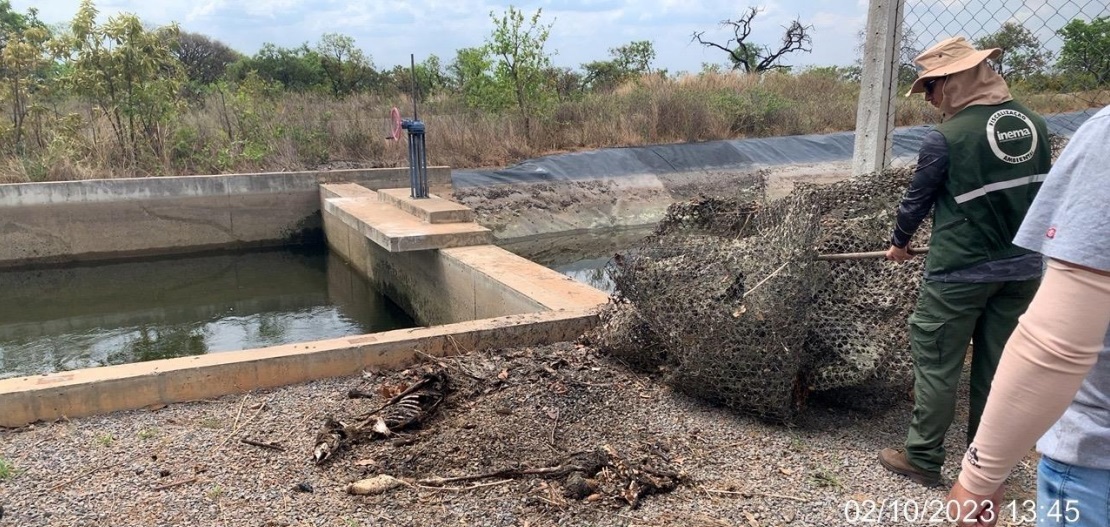A FARM in western Bahia has been fined for the third time in September by environmental authorities for failing to adequately safeguard its irrigation canals, posing a risk to the wildlife surrounding the Grande Sertão Veredas Park, a sanctuary for Cerrado species. In October 2023, an “animal cemetery” of wild species was found on the property.
The case centers around Karitel Farm, located in the municipality of Cocos (BA). Inspectors from Bahia’s Institute of Environment and Water Resources (Inema) discovered bones and decomposing carcasses along the farm’s irrigation canals, which stretch for about 40 kilometers. Repórter Brasil accessed this information from an environmental agency report.
Thirsty maned wolves, tapirs, armadillos, and other animals from areas near the park enter these “artificial rivers” seeking water. However, because the reservoirs are lined with a slippery tarp, they become traps for the animals, who become trapped and drown.
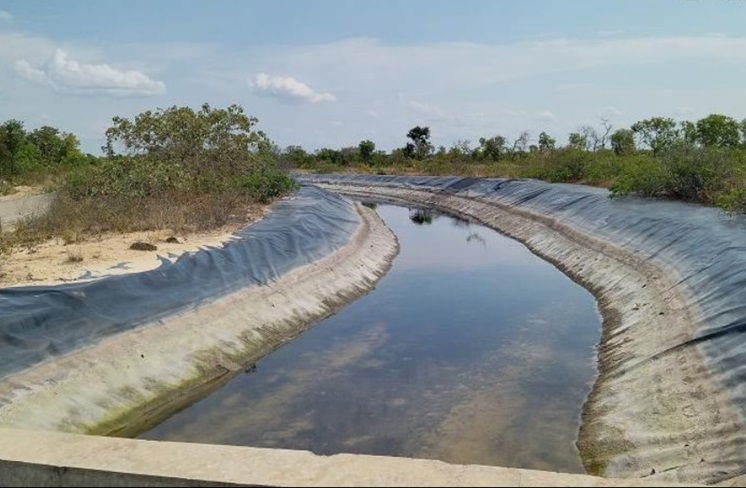
Karitel Farm is owned by the Santa Colomba group, a grains, coffee, cotton, and tobacco producer in western Bahia. The company was inspected by the Chico Mendes Institute for Biodiversity Conservation (ICMBio) and Inema following the deaths of three maned wolves on a neighboring farm between June and August 2023.
:: Read more : Maned wolves drown on a farm supported by Rabobank; State government demands action
The Santa Colomba group supplies tobacco to multinational Philip Morris and cotton to factories in Pakistan and Turkey, which manufacture clothing for brands like H&M, Ralph Lauren, and PVH, the parent company of Calvin Klein and Tommy Hilfiger.
In November 2023, Karitel Farm was fined USD 36,830 (BRL 200,000) for failing to implement “necessary environmental protection measures in the construction and operation of canals and reservoirs for irrigated agriculture.” In June of this year, an additional daily fine of USD 92 (BRL 500) was imposed for not resolving the issue. The third citation in September doubled the daily fine.
In response to inquiries from Repórter Brasil, Santa Colomba stated that it holds “all necessary environmental licenses for the use of transposition canals for irrigation of its productive areas” and that it “regrets any loss to the region’s wildlife.” The company also mentioned that it has a team of veterinarians and biologists who monitor and rescue animals on their properties. The group added that it works with the Association of Farmers and Irrigators of Bahia (AIBA), the Bahia Cotton Producers Association (ABAPA), and Inema “to develop alternatives that support environmental balance across the region.” Read the full statement here.
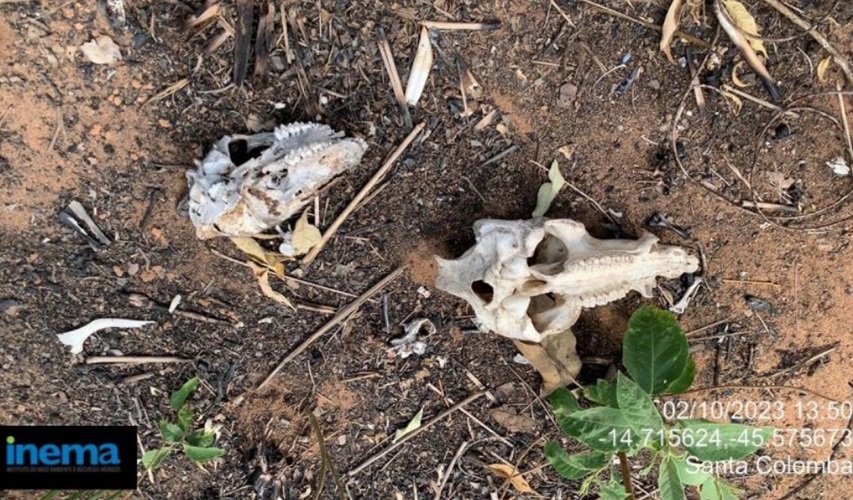
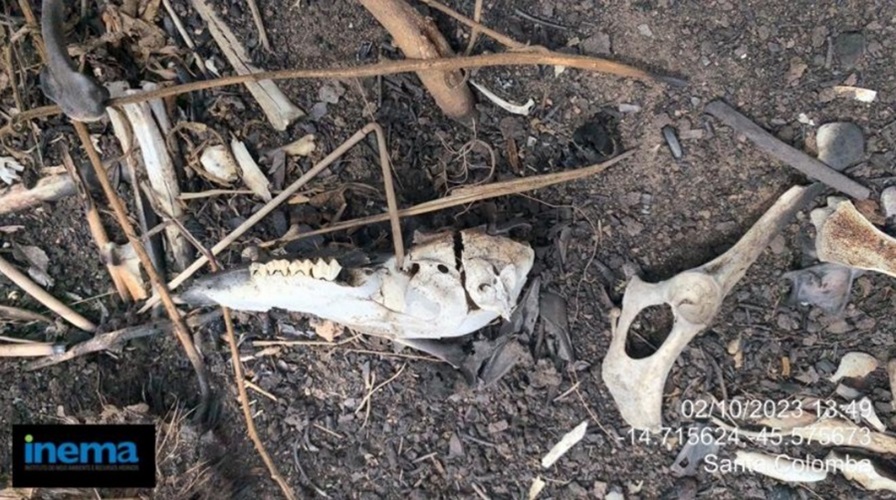
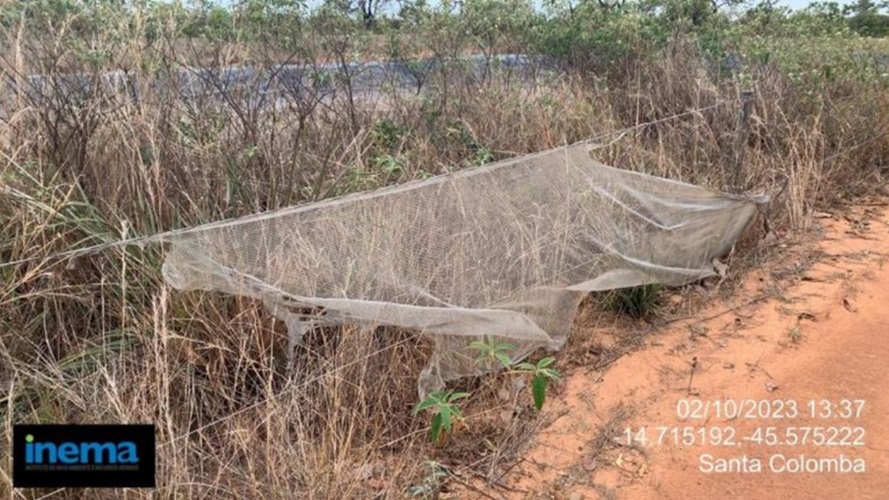
Rodrigo Gerhardt, Wildlife Manager at World Animal Protection, believes agribusiness is causing a series of impacts on wildlife. The first, he notes, is deforestation, which can be monitored via satellite. However, other issues escape the scrutiny of environmental agencies. “Animals poisoned by pesticides or drowning in irrigation canals depend on thorough local inspections, and that is very insufficient,” he explains.
Supplier to Philip Morris
Nearly half (49%) of Santa Colomba’s net revenue in 2023 came from tobacco production, according to the company’s financial statements accessed by Repórter Brasil. The document states that the group has an exclusive contract to supply Philip Morris, owner of the Marlboro and L&M cigarette brands.
When asked about the animals reportedly dying due to unsafe irrigation canals on its supplier’s farm, Philip Morris stated that it contacted Santa Colomba “to seek immediate solutions” as soon as it became aware of the situation. The tobacco company said Santa Colomba informed them that it was in contact with environmental agencies to “determine definitive actions” and confirmed that it would follow up on the measures taken. Read the company’s full statement here.
Cotton used by fast fashion brands
According to Santa Colomba’s financial report, another significant portion (32.5%) of its 2023 net revenue comes from cotton production. The company is certified by the Better Cotton Initiative, the world’s leading sustainability program for the sector. In Brazil, cotton producers who adhere to the Brazilian Responsible Cotton Program (ABR) by the Brazilian Cotton Producers Association (Abrapa) can sell their cotton with the Better Cotton seal. According to Abrapa, Santa Colomba has held both certifications since the 2018/2019 crop.
Customs data accessed by Repórter Brasil indicate that in July of this year, Santa Colomba supplied certified cotton to a factory owned by Soorty Enterprises in Pakistan. Soorty is listed as a supplier for the clothing brand H&M, as disclosed on the company’s website.
Asked about the situation involving a supplier in its production chain, H&M stated that it “takes very seriously” any potential violation of its requirements and that its suppliers carry the Better Cotton certification. “Currently, the evaluation system includes references to wildlife protection, [stating] that cotton producers must be aware of the animals passing through their fields and take measures to avoid negatively impacting them,” the company said. It also reported that it communicated its concerns to the Better Cotton certification body.
Better Cotton said it formally notified Abrapa upon learning of the case, “allowing them to conduct a thorough investigation and prepare a report with their findings.” The certification body added that producers using its label “must be aware of the animals passing through their fields and implement measures to avoid negatively impacting them.”
The complete statements from H&M and the Better Cotton Initiative can be read in full here.
Customs data accessed by Repórter Brasil also show that Santa Colomba supplied cotton to Crescent Textile Mills in Pakistan and to a unit of Kipas Holding in Turkey during 2023.
Crescent Textile Mills is listed as a supplier for Ralph Lauren, while Kipas Holding appears on the supplier list of PVH, the parent company of Calvin Klein and Tommy Hilfiger. Another Kipas Holding company, Kipas Pazarlama Ve Ticaret A.S., is also mentioned on H&M’s supplier list.
Repórter Brasil received no response from Soorty, Crescent, Kipas, Ralph Lauren, PVH, or Abrapa, which is responsible for the ABR seal, used as a benchmark by Better Cotton. The space remains open for future statements.
“The supply chain’s responsibility for environmental and animal protection must be absolute. Just as we don’t want to consume brands linked to slave labor or deforestation, we also don’t want brands associated with the death of animals,” says Rodrigo Gerhardt from World Animal Protection.
The reporting of this story was supported by Brighter Green’s Animals and Biodiversity Reporting Fund.
